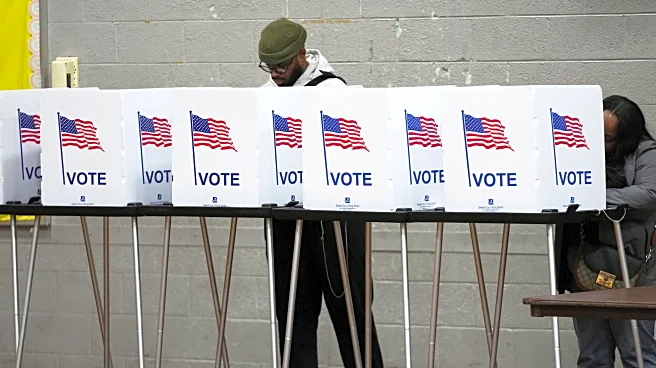What's Happening?
The New Zealand government has announced a ban on new prescriptions of puberty blockers for young transgender individuals, effective December 19. Health Minister Simeon Brown stated that doctors will no longer
prescribe gonadotropin-releasing hormone analogues for gender dysphoria or incongruence unless patients are already on the medication. This decision follows a health ministry review citing a lack of high-quality evidence regarding the benefits or risks of these drugs. The ban has sparked concern among critics who argue it could negatively impact the mental health of transgender youth. The drugs will remain available for conditions such as early onset puberty, endometriosis, and prostate cancer, as well as for current users.
Why It's Important?
The decision to halt new prescriptions of puberty blockers in New Zealand is significant as it reflects a growing global debate on the treatment of gender dysphoria in adolescents. Critics warn that the ban could lead to increased mental health issues, suicidality, and dysphoria among transgender youth, potentially exacerbating their marginalization and discrimination. The move may influence other countries considering similar restrictions, impacting access to gender-affirming healthcare worldwide. The decision underscores the tension between ensuring safe medical practices and providing necessary support for transgender individuals.
What's Next?
The ban is set to take effect on December 19, and stakeholders are likely to respond with varying degrees of support or opposition. Advocacy groups may push for policy changes or increased support for affected individuals. The government may face pressure to provide alternative support mechanisms for transgender youth. Internationally, the decision could prompt discussions on the regulation of puberty blockers and gender-affirming treatments, influencing policies in other countries.
Beyond the Headlines
The ban raises ethical questions about the autonomy of young individuals in making healthcare decisions and the role of government in regulating medical treatments. It highlights the need for comprehensive research on the long-term effects of puberty blockers and the importance of balancing medical caution with the rights of transgender individuals to access necessary healthcare. The decision may also impact cultural perceptions of transgender healthcare and the broader societal acceptance of gender diversity.










